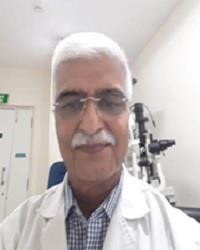Best Doctors for Retinal Detachment in Hyderabad
Retinal Detachment is a severe eye condition whereby the light-sensitive tissue lining the back of the eye separates from its usual position. This disruption can impair vision and potentially lead to loss of sight if not promptly addressed. The condition has distinct causes and risk factors such as age, extreme nearsightedness, prior eye surgery, and eye injuries.
In Hyderabad, the incidence of retinal detachment is a significant issue. However, residents have access to some of the finest retinal detachment doctors and specialists at Apollo Hospitals, who offer world-class care. The retinal detachment treatment doctors are renowned for their dedication and expertise, having honed their skills to provide high-standard care to patients from all walks of life.









 Call Now
Call Now













